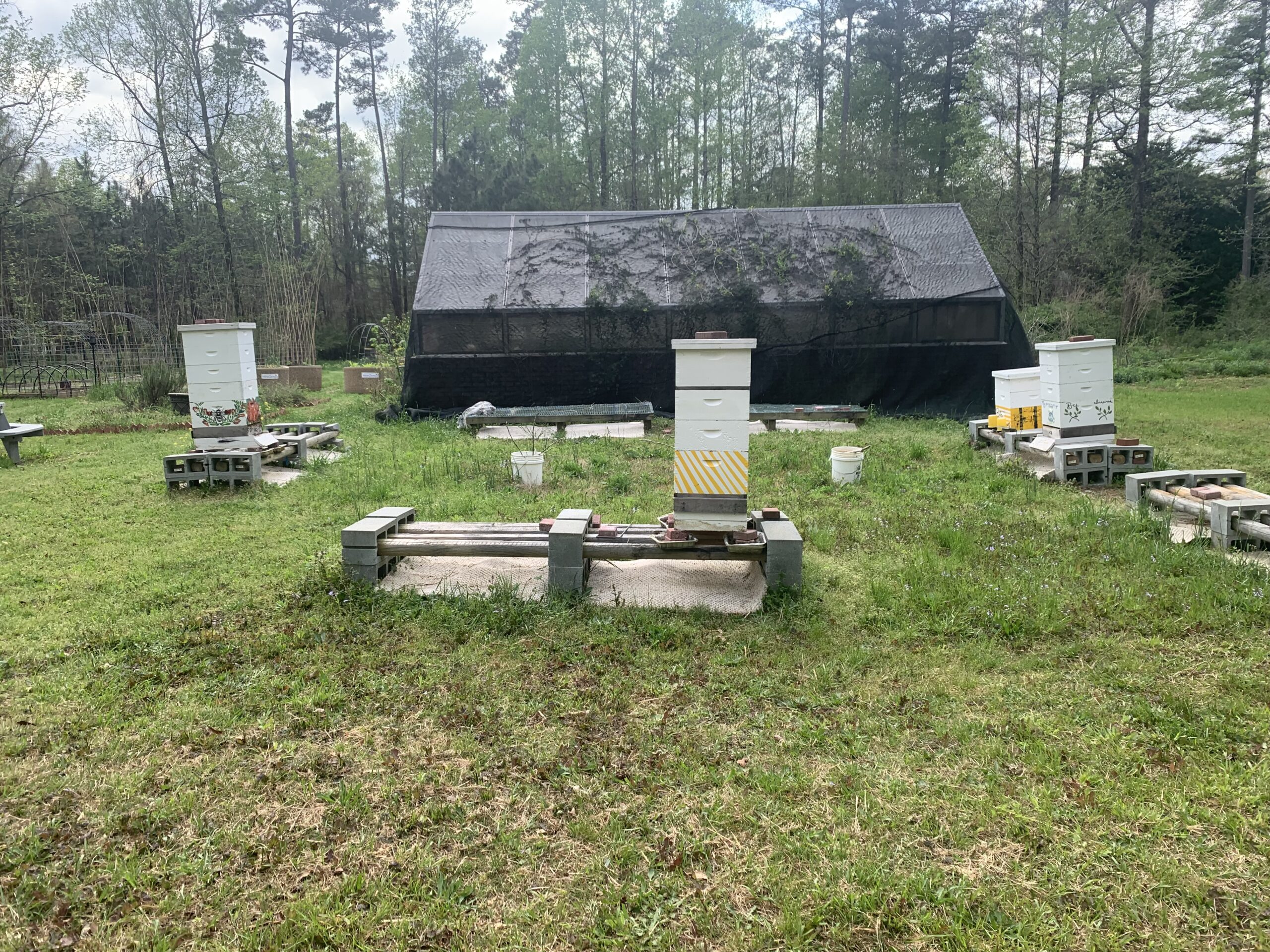More than a decade ago, the biology department at UWG created a first of its kind beehive project—or apiary, on campus. The project was originally started by faculty to enrich the educational and research opportunities for both undergraduate and graduate students.
Following the success of the apiary, students in the UWG Biology program have recently expanded on the project by establishing two pollinator garden sites. Dr. Gregory Payne, Professor and Program Coordinator of Biology at UWG, said that the apiary was originally created informally following a beekeeping workshop. Both Dr. Payne and Dr. Joe Hendricks, a Biology Professor in the Department of Natural Sciences, were the original founders of the project.
“Dr. Hendricks had taken his family to a beekeeping workshop in Athens at the University of Georgia,” said Dr. Payne. “He was reflecting on his family’s experience and talking about how a UWG campus apiary could provide great educational and research opportunities for our students. At the time, it was pretty unique to have an apiary on a campus where students could observe the colonies in action and get hands-on experience managing the bees.”
Bees are an especially important part of the ecosystem for all life forms, especially for humans. Animal pollinators, including bees, help maintain biodiversity and productivity of natural ecosystems and are now being considered as agricultural livestock, according to Dr. Hendricks.
“Albert Einstein stated that ‘If the bee disappears from the surface of the earth, man would have no more than four years to live,’” said Dr. Hendricks. “More than 85% of flowering plants are “self-sterile” meaning that they must have an animal pollinator to reproduce. Out of the roughly 1,330 crop plants grown for food, beverage, fiber, spices, and medicines worldwide, approximately 1,000 are animal pollinated.”
“While there are many different animal pollinators, bees as a group are very effective pollinators,” continued Hendricks. “In the U.S. annual losses of about 40-45% of the managed honeybee colonies has become quite common during the past several years.”
There are many factors that may contribute to honeybee colony losses and collapse. Dr. Hendricks says three of the most common causes of colony losses include uncontrolled infestations of the hive, queen issues and over-wintering starvation.
Managed honeybee colonies require a huge time commitment. Faculty and students at UWG put a large time and financial commitment into the apiary to keep the colonies healthy and productive.
“Honeybees require active management from the spring through the fall, and sometimes in the winter as well to control pests and maintain healthy colonies,” said Dr. Hendricks. “Routine checks are done to assess brood production, nectar and pollen storage, the presence of disease, and parasite loads are necessary.”The decline of pollinators has substantial effects on crops responsible for feeding millions globally and ecologists are working overtime to maintain and increase animal pollinators for the sustainability of the planet. So next time you sit down to eat your next meal, just remember that one out of every three bites of food you eat depends on the honeybee.
You may also like
-
UWG PR Students Score a Georgia Power Tour at Atlanta Corporate Office
-
UWG Hosts Rapha Clinic Annual 5K Fundraiser
-
QSA Annual Drag Show Entertains Eager, Diverse Crowd
-
UWG Students represent at the 2025 AMA International Collegiate Conference in New Orleans
-
Italian Poet Shares His Love Of America Through Poetry at UWG Poetry Reading
